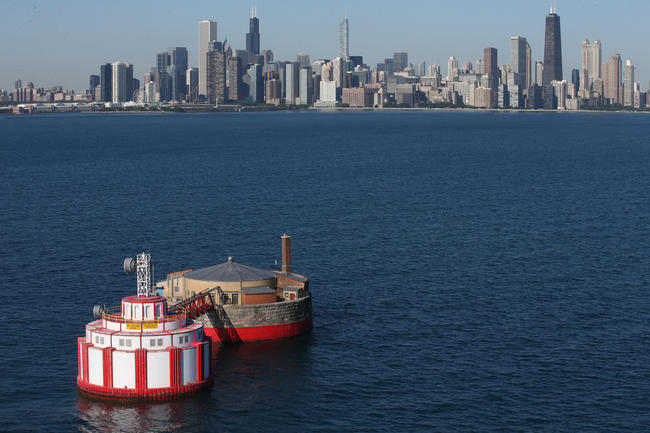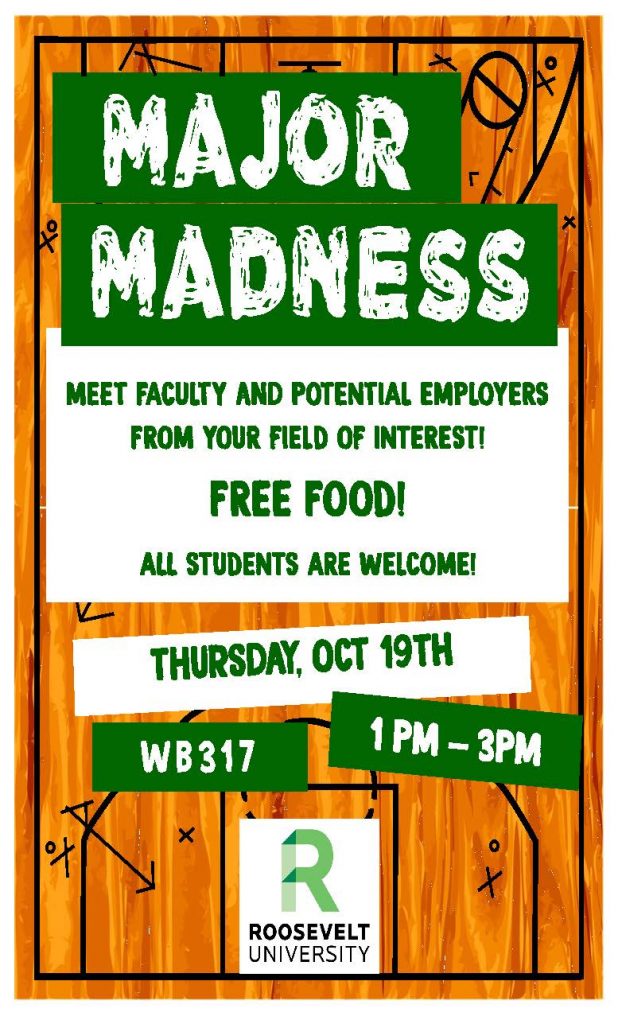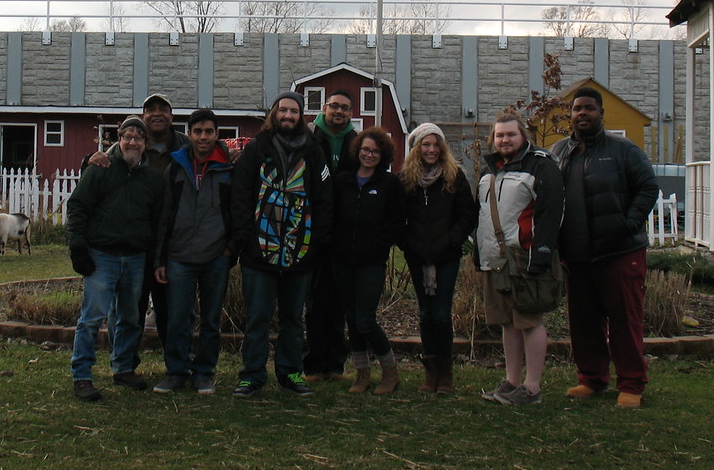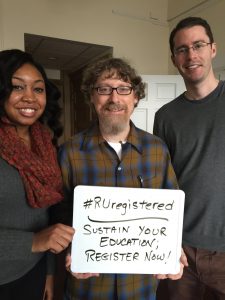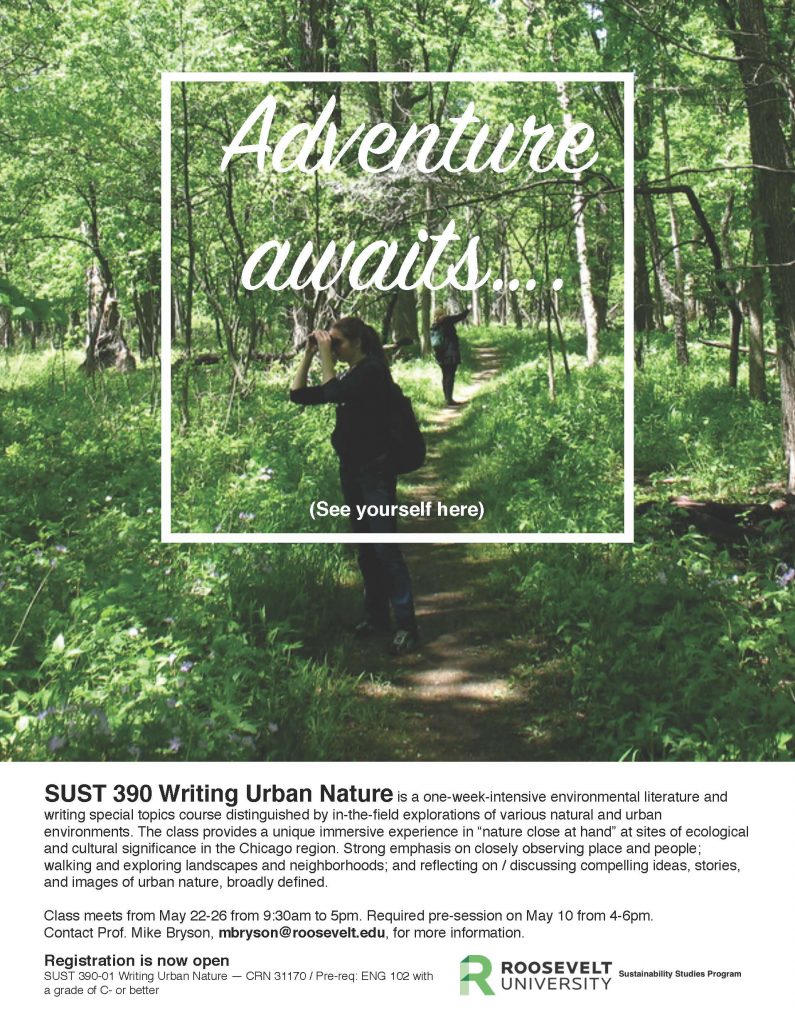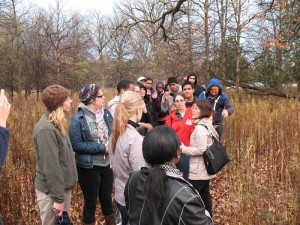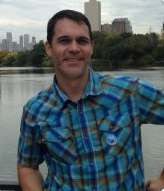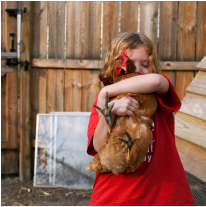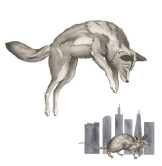Today, April 27th, is officially my favorite day of the semester: Symposium Day! Please join me at today’s Sustainability Studies Program at Roosevelt University for a special afternoon Symposium of student projects and research from 2:30-5:30pm in RU’s LEED Gold-certified Wabash Building at 425 S. Wabash Ave. in downtown Chicago (room 1214).
Students in Roosevelt’s SUST program will give presentations about their recent campus sustainability projects, internships, and research experiences in a forum that is open to all RU students, faculty, and staff as well as the general public. The Symposium also will be videoconferenced via Zoom, so you may attend online or by phone, if you wish (see below).
I’m exceedingly proud of all of these students and the work they’ve done this semester. Break a leg, everyone!
Featured Student Speakers
 Members of SUST 390 Sustainable Campus (honors) — From Plan to Action: Moving Sustainability Forward at RU
Members of SUST 390 Sustainable Campus (honors) — From Plan to Action: Moving Sustainability Forward at RU
Students in the Spring 2016 honors seminar “Sustainable Campus” will start our Symposium with a series of group presentations on their campus sustainability projects undertaken this spring to help advance RU’s Strategic Sustainability Plan across several fronts. Teams will discuss their initiatives in four areas: general education curriculum (Nicole Kasper & Kurt Witteman), food waste reduction (Michael Gobbel & Tom Smith), student orientation (Jessica Heinz, Claudia Remy, & Moses Viveros), and bottled water policy (Ashley Nesseler, Lacy Reyna, & Brandon Rohlwing). And if you think they look happy in this photo, wait until they’re done presenting today.
 Lindsey Sharp — A Key to Unlocking Species Diversity at Lolldaiga Ranch
Lindsey Sharp — A Key to Unlocking Species Diversity at Lolldaiga Ranch
Lindsey is a senior SUST major and returning adult student who was awarded the prestigious Travis Foundation Scholarship this fall at RU, a competitive award given to 16 students each year. The scholarship enabled her to continue her studies as well as pursue a Spring 2016 internship at the Field Museum of Natural History, which she reported on recently here. Her project focuses on the preparation and identification process of specimens collected during field research in the Eastern Province of Kenya. The results of the identification process were also analyzed in order to determine the area’s population of rodent species, which can be compared to earlier samples gathered from the area in order to determine changes in biodiversity over time. Her talk will discuss her everyday work at the lab in the larger context of mammal ecology, biodiversity conservation, and the value of museum collections research.
 Cassidy Avent — Summer at SCARCE: An Environmental Education Internship Experience
Cassidy Avent — Summer at SCARCE: An Environmental Education Internship Experience
Throughout the summer of 2015, SUST senior Cassidy Avent had the opportunity to work as an intern for an environmental NGO known as School and Community Assistance for Recycling and Composting Education (SCARCE). Her summer included working at the SCARCE office in Glen Ellyn IL, giving environmental education presentations at schools and community events, participating in teacher workshops, and many other fulfilling activities. Within this presentation she discusses her experience at SCARCE along with all of the valuable information and insights she gathered while interning at such a fascinating place.
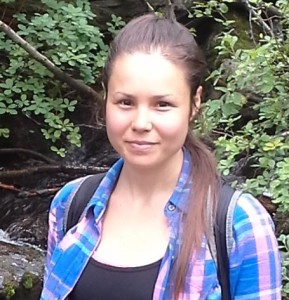 Tiffany Mucci — Midewin: One Land’s Story of Recovery and Renewal
Tiffany Mucci — Midewin: One Land’s Story of Recovery and Renewal
SUST senior and returning adult student Tiffany Mucci, who has served as the Assistant Editor of the SUST at RU Blog this academic year, explores Midewin National Tallgrass Prairie as a living example of both the challenges we face in restoring and managing our native landscapes, and the resiliency of nature. Her presentation will highlight this site’s history as one of our nation’s most productive ordnance complexes to ever exist, and reveal its present-day designation as a protected tallgrass prairie ecosystem under the U.S. Forest Service. From seeding, to frogging, to corralling the newly-adopted buffalo of Midewin, she’ll relate what goes into “making a prairie” in the 21st century.
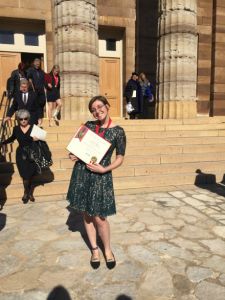 Lacy Reyna — Temporal Distribution of Bryophytes in Cook County, IL
Lacy Reyna — Temporal Distribution of Bryophytes in Cook County, IL
Senior science major and honors student Lacy Reyna, a double major in biology and psychology and RU’s 2015 Lincoln Laureate, worked in the botany division of the Field Museum while enrolled in the museum-based SUST 330 Biodiversity course this past fall with Lindsey. Using collections data from various institutions including the Field Museum, her research done in collaboration with FMNH scientists documents the shift in bryophyte species in Cook County across time. Her talk provides potential explanations for the shifts in species populations as well as discusses the importance of museum collections for biodiversity conservation.
Come join us to learn about and celebrate these students’ work! This event is free and refreshments are provided. Kindly RSVP to Mike Bryson (mbryson@roosevelt.edu) your plans to attend. Videoconferencing will be made available via Zoom. Hope to see you there! And if you need further incentive to attend, just check out past Symposia from 2013-15.
Essential Information
- Date / Time: Wednesday, Apr. 27th, 2015 / 2:30-5:45pm
- Agenda: Refreshments served and pleasant hobnobbing begins at 2pm; presentations start promptly at 2:30pm; event concludes ~ 5:30pm (with more chit-chat and eating)
- Place: RU’s Wabash Building, 425 S. Wabash Ave., Chicago IL, room 1214
- Zoom Videoconferencing: Can’t attend in person? See below!
- RSVP: SUST Director Mike Bryson (mbryson@roosevelt.edu)
Zoom Videoconference Information
- Join from PC, Mac, Linux, iOS or Android: https://roosevelt.zoom.us/j/368245293
- Or iPhone one-tap: 14086380968,368245293# or 16465588656,368245293#
- Or Telephone:
+1 877 369 0926 (US Toll Free) or +1 888 974 9888 (US Toll Free)
Meeting ID: 368 245 293
Links to past Symposia
- Symposium 1.1 (Fall 2013): Alison Breeding, Kyle Huff, Ron Taylor
- Symposium 1.2 (Spring 2014): Colleen Dennis, Jordan Ewbank, Mary Beth Radeck
- Symposium 2.1 (Spring 2015): Melanie Blume, Rebecca Quesnell, Mary Rasic, Emily Rhea
